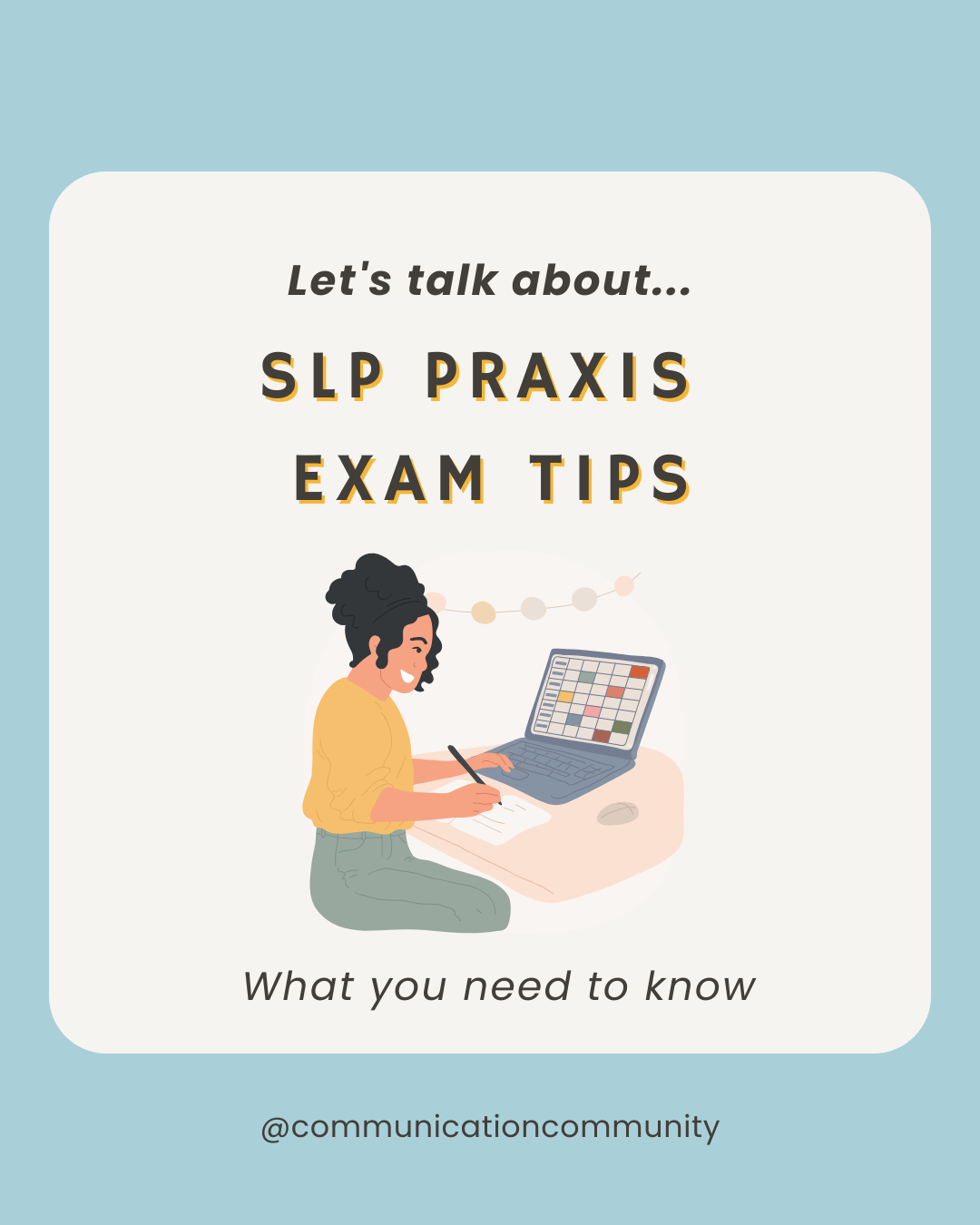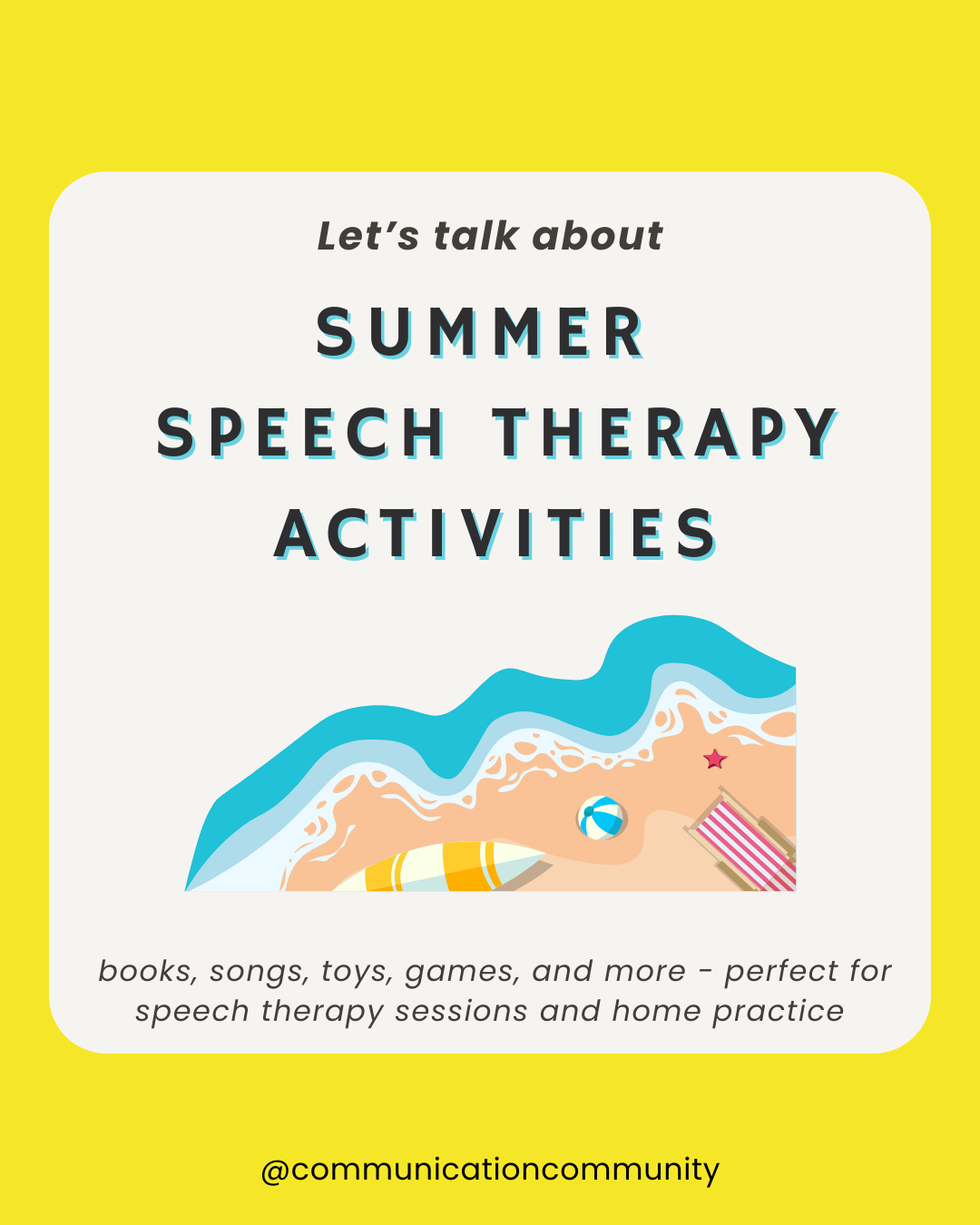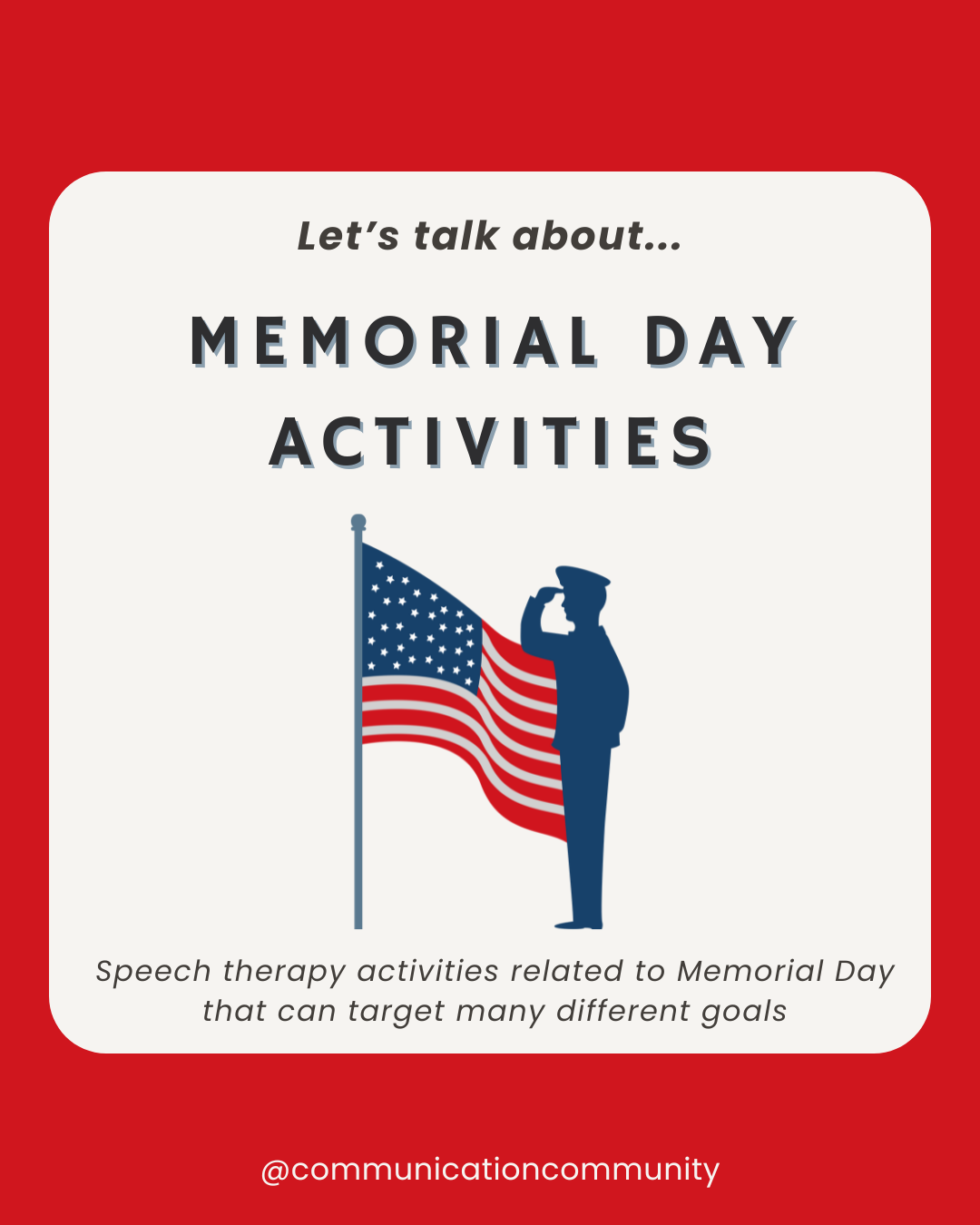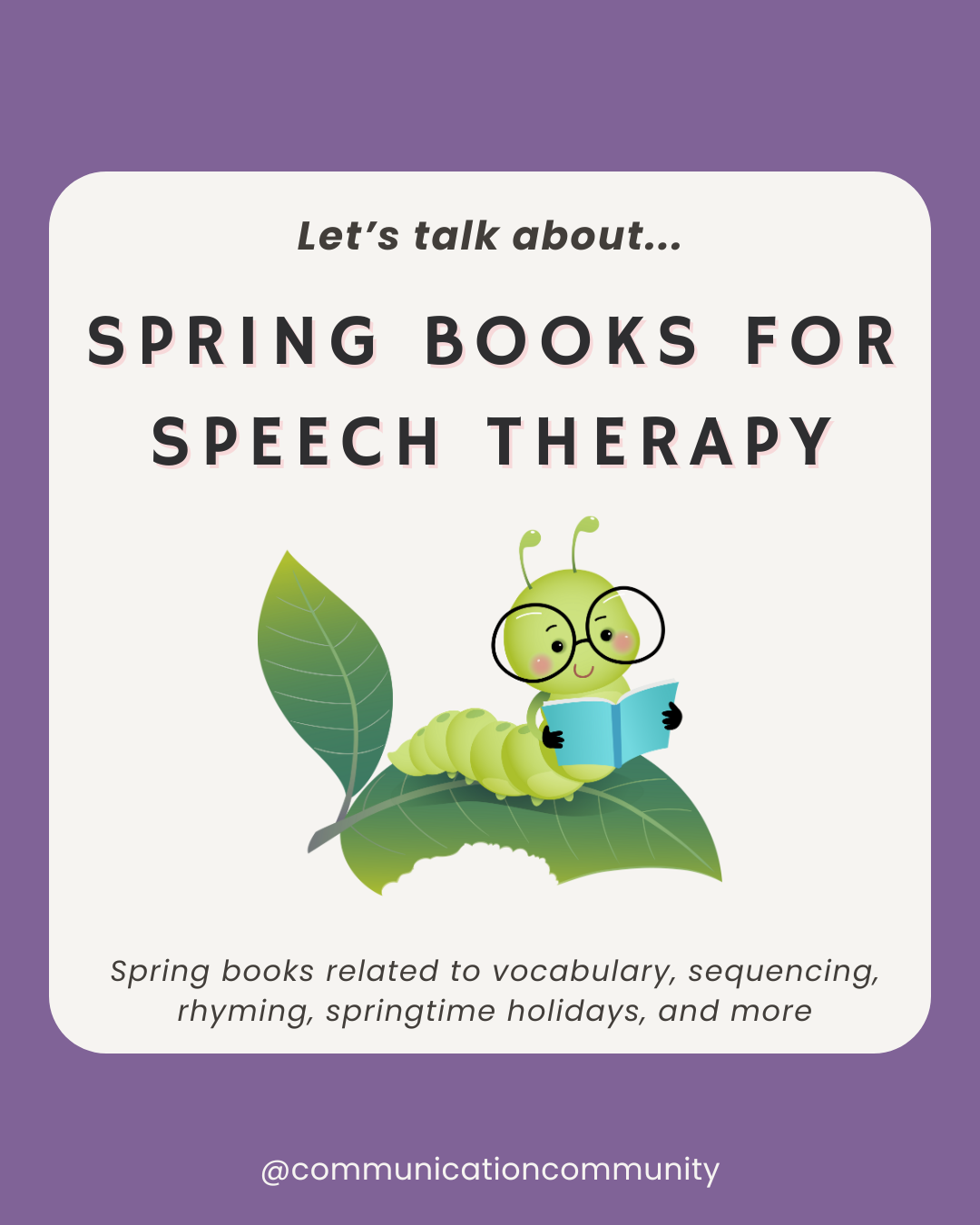What are Core Words?
Core words account for approximately 60 - 80% of the words that we say every day. They include many different parts of speech, such as pronouns, prepositions, adjectives, and verbs. Nouns are not usually core words. Continue reading to see why.
Core Words Versus Fringe Words
Nouns, and other words that are not considered core words, are often referred to as fringe words. Fringe words are vocabulary that are usually used in just one or a few contexts and not with the same frequency as core words. Lion and ice cream, which are nouns, could be examples of fringe words.
A robust language system for an individual should contain both core and fringe vocabulary. Core vocabulary is used the most often but fringe vocabulary allows an individual to talk about specific things, events, or people relevant to their life and environmental context.
Why Do We Use Core Words?
Core words are usually flexible and used across multiple contexts. For example, the word go can be communicated when moving to a different location, leaving a location, and initiating an action. Go can be used at home, at school, in the community, while playing, and while completing activities of daily living (ADLs).
Core Word Activities for Speech Therapy
The “Core Word of the Week” approach is a common way to target core words in speech therapy sessions, in the classroom, and other instructional environments. Using this approach, one core word (e.g., help) is targeted multiple times over the course of the week to increase exposure to it and highlight how it can be used in different contexts.
⭐ Looking for a ready-to-go Core Word of the Week Lesson Plan?



Get over 90 pages of lesson slides & an accompanying instructional packet for 10 CORE WORDS! Available on TPT or included with the Premium Community membership!

Why to Use Books for Core Words Instruction
Regardless of if you decide to use a “Core Word of the Week” approach, picture books are still a great way to target core words.
Book with core words are useful for many different reasons:
- Predictability: Some picture books follow predictable patterns or have repetitive phrases. This predictability can help individuals who use AAC anticipate how core words may be used.
- Visual Support: The visual support provided by pictures in picture books can aid individuals who use AAC in associating the word with its meaning.
- Contextual Learning: Picture books provide a context for core words, allowing individuals who use AAC to see how these words are used in real-life situations.
- Engagement: Many picture books are visually engaging and can capture the attention of individuals who use AAC, making learning more enjoyable.
- Repetition: Picture books often repeat core words throughout the story. This repetition helps reinforce the use of these words.
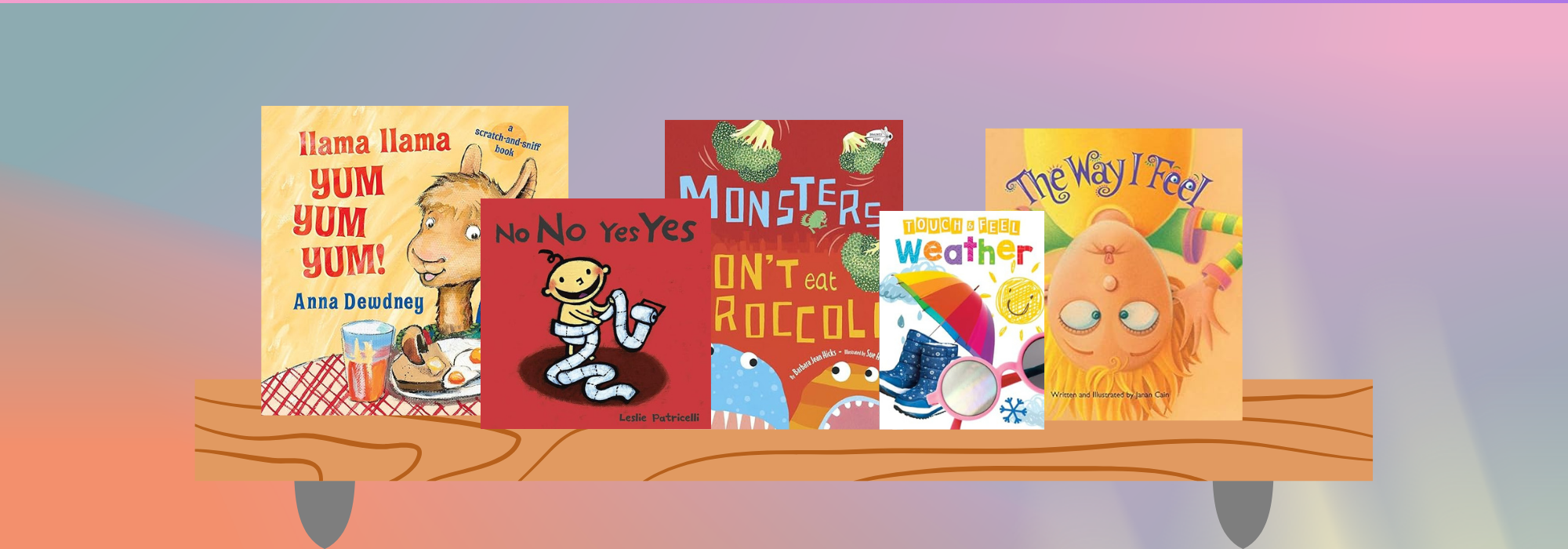
Books for Core Words
The following are picture books that can be used to teach and provide exposure to various core words.
Core words included:
- Eat
- Feel
- Go
- I
- Like
- More
- No
- On
- Open
- Play
- See
- Up
- Want
- Where
- Yes
Note: many books may be used to target more than one core word, which is why you may find some in multiple categories.
1) Core Word: Eat
Books:
- Llama, Llama, Yum, Yum, Yum by Anna Dewdney
- Monsters Don’t Eat Broccoli by Barbara Jean Hicks
2) Core Word: Feel
Books:
- The Way I Feel by Janan Cain
- How Do You Feel by Lizzy Rockwell
- Weather - Touch and Feel Board Book by Little Hippo Books
3) Core Word: Go
Books:
- Go, Train, Go! by Rev. W. Awdry
- Go Away Big Green Monster by Ed Emberley
- Let’s Go Mickey & Friends by Derek Harmening
4) Core Word: I
Books:
- Pete the Cat I Love My White Shoes by Eric Litwin
- Ruby’s Reunion Day Dinner by Angela Dalton
- Is Your Mama a Llama? by Deborah Guarino
5) Core Word: Like
Books:
- What Do You Like? by Michael Grejniec
- I Like Myself by Karen Beaumont
6) Core Word: More
Books:
- Just One More by Jennifer Hansen Rolli
- Bear Wants More by Karma Wilson
7) Core Word: No
Books:
- No, David! by David Shannon
- You Are (Not) Small by Anna Kang
- I Ain't Gonna Paint No More! by Karen Beaumont
- No No Yes Yes by Leslie Patricelli
8) Core Word: On
Books:
- Bear On a Bike by Stella Blackstone
- Room On the Broom by Julia Donaldson
9) Core Word: Open
Books:
- Dear, Zoo! by Rod Campbell
- Where’s Spot? by Eric Hill
Lift and flap books are great for the core word open as well!
10) Core Word: Play
Books:
- Can I Play Too? by Mo Willems
- Come Out and Play, Little Mouse by Robert Kraus
11) Core Word: See
Books:
- Brown Bear, Brown Bear, What Do You See? by Bill Martin Jr. and Eric Carle
- You Are (Not) Small by Anna Kang
- I See a Cat by Paul Meisel
12) Core Word: Up
Books:
- Up, Up, Up! by Susan Reed
- Great Day for Up by Dr. Seuss
13) Core Word: Want
Books:
- Bear Wants More by Karma Wilson
- If You Give a Mouse a Cookie by Laura Numeroff
14) Core Word: Where
Books:
- Where is Bear? by Jonathan Bentley
- Where’s the Ladybug? by Ingela P Arrhenius
15) Core Word: Yes
Books:
- Yes Day! by Amy Krouse Rosenthal
- No No Yes Yes by Leslie Patricelli
- Yes by Jez Alborough
Many books available via hard copy also have digital versions on YouTube! Using a digital book may be helpful for group instruction or situations where getting a physical book is not feasible.

More AAC & Core Word Resources
Cover all things AAC and feel confident in your skills - check out our other related blog posts!
- AAC Goal Bank for Measurable Treatment Goals
- What are Core Words?
- Core vs Fringe Words
- AAC Group Ideas
- Modeling Without Expectation
- Aided Language Stimulation
- AAC Tips for Parents and Caregivers
This post contains some affiliate links and we are (slightly) compensated if you use them, but all opinions are our own. We appreciate the support!
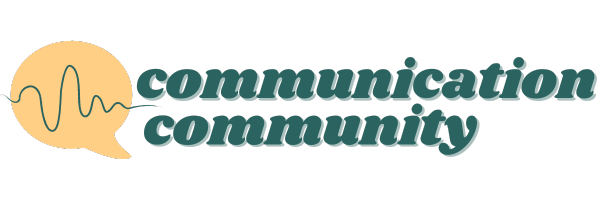
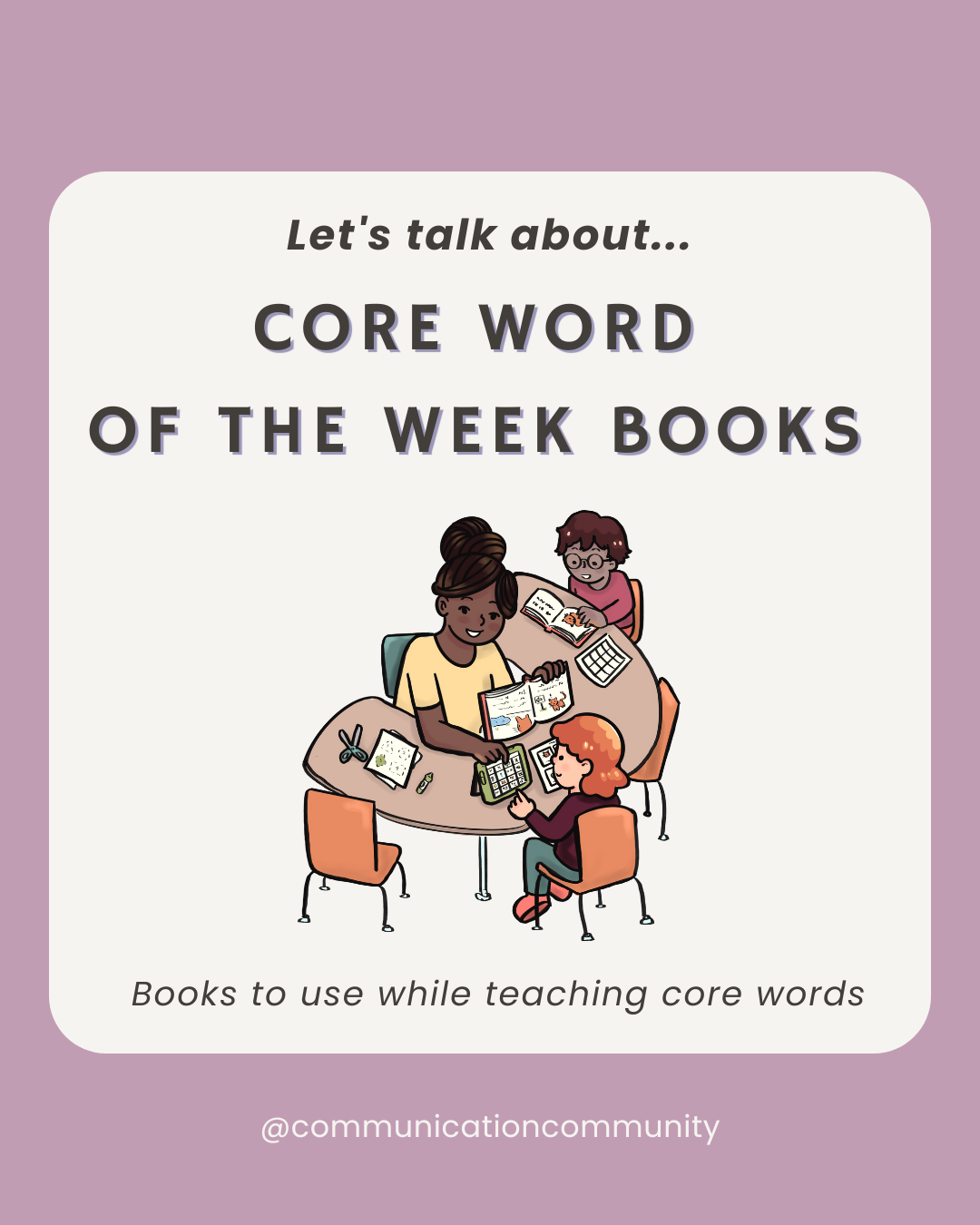
![How to Write Apraxia Goals [with goal bank]](https://www.communicationcommunity.com/content/images/2024/07/Apraxia-Goals--1-.png)
